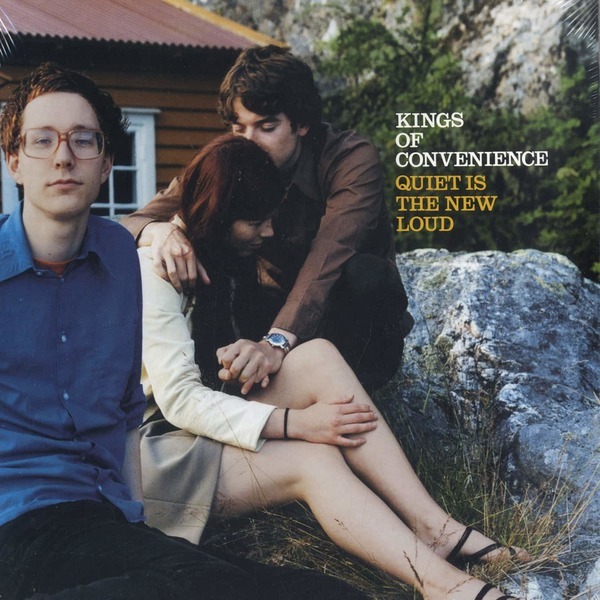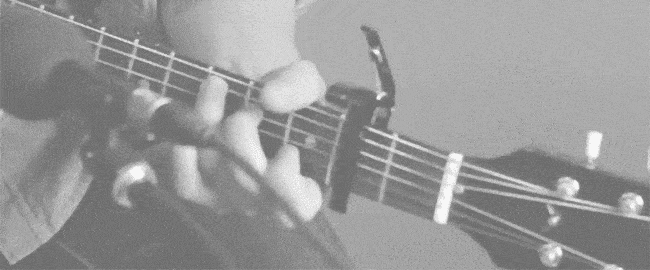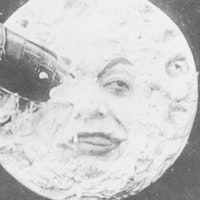
A record that somehow became iconic despite a mixed critical response.
It’s weird to think about, but a band known for soft acoustic music has shown more staying power than nearly every single one of the artists on its initial record label—a label significantly better known its numerous electronic artists.
The band is Kings of Convenience, whose acoustic motif had an album title that perfectly defined its mission way back in 2001—Quiet is the New Loud. The Norwegian duo of Erlend Øye and Eirik Glambek Bøe approached their music simply, with limited accompaniment from outside instruments, and the record, released on Astralwerks (home to Fatboy Slim, Basement Jaxx, and The Chemical Brothers at the time), perhaps seemed a bit gimmicky to critics at the time as a result, although it’s now largely seen as a folk-music landmark today.
Pitchfork’s view of the band as it released its albums was telling. Their review of the first record seemed to be just stunned at the gall of it all:
The formula of acoustic arpeggios, light drumming, tender pianos, and the occasional subtle horn or string section makes for an album that’s as slight and gentle as Saltines and mineral water. The boys never deviate from this, and thus Quiet is the New Loud, inane title and all, never reaches higher than saccharine easy listening.
And as the group matured both as a duo and in solo contexts, there seemed to be increasing pressure to take this simple formula and destroy it. In particular, Øye’s experimentation with electronic music, particularly his well-reviewed 2004 contribution to the long-running DJ-Kicks series of mix albums, seemed to put pressure on the band to deviate from the original formula.
“Homesick,” probably the best distillation of the Kings of Convenience sound.
And to their credit, they resisted, leaving the electro work to remix albums and outside projects. Riot on an Empty Street, complete with a leadoff song that sounded more like “The Boxer” than anything Simon & Garfunkel ever produced, doubled down on the formula super hard, and their third record did even better with critics. Pitchfork writer Marc Hogan, in his review of 2009’s Declaration of Dependence, admitted that the bet on dual-guitar formalism actually worked.
“Along with sharper songwriting focus, this go-for-broke softness makes for the most durable, rewarding Kings of Convenience album yet,” he wrote.
Kings Of Convenience’s comeback single, “Rocky Trail,” complete with excellent video.
So it’s been interesting to listen to their latest single “Rocky Trail,” released just last week after an extended 12-year break. During that period away—made longer by challenges with recording a new record, which took five years to pull off—the band became a hugely popular streaming favorite, effectively becoming that band that lots of people secretly loved … like Nick Drake and Elliott Smith, except they were still with us, and fully aware of the risks of deviating from the formula.
Compare this to other bands known for a certain sound from this era. Bon Iver, which started out as basically a soft-focus acoustic project just like Kings of Convenience did, is now much more of an avant-garde project with electronic influences, and as a result Justin Vernon’s For Emma, Forever Ago hits differently in the context of a larger collection of music—it feels pedestrian compared to a more ambitious whole, despite arguably still being Bon Iver’s best record.
To be clear, Bøe and Øye recorded more ambitious music the entire time as well—Øye in particular has released a bunch of music under different names, most notably The Whitest Boy Alive. (Last year, he recorded a pandemic album, Quarantine at El Ganzo, with another member of that band after getting stuck in a hotel in Mexico.)
But a Kings of Convenience album? You knew exactly what you were getting. And that is a massive asset in an era when often getting into a new act means you actually want more of the same.
(Another artist that does a good job with this is fellow Scandinavian José González, whose modern-day acoustic music largely follows the same template his famed cover of The Knife’s “Heartbeats” did nearly two decades ago.)
So when “Rocky Trail” appeared last week sounding exactly like a song on Quiet is the New Loud, it was as if the duo knew what it was doing, releasing music that would fit perfectly with the other three albums they’ve released. (Also, the music video, which comes off like an off-brand IKEA ad, is a breath of fresh air and full of random details.)
To put it another way, Kings of Convenience has positioned itself as the perfect band for the streaming era. You know what you’re getting from them.
They play the hits on the main project, and they save the experiments for elsewhere.
Time limit given ⏲: 30 minutes
Time left on clock ⏲: 1 minute, 51 seconds



